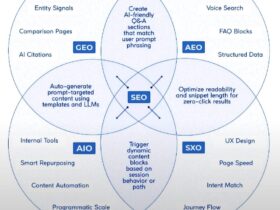What Do Digital Marketers Do?
Have you ever wondered who creates the ads on Facebook or Instagram? Or the blog posts that pop up in Google searches? What about those emails with great offers in your inbox? All these are made by digital marketers. Their job is to assist businesses in reaching the right audience online. They help share products and ideas effectively. They use websites, ads, videos, and emails to grab your attention. Digital marketers study what people like and search for. This helps them share the right message at the right time. That’s why you often see ads that match your interests.
These experts connect brands with their ideal online audience. In today’s digital world, their role is more important than ever.
Understanding Digital Marketing
Digital marketing promotes products, services, or brands through online platforms. It differs from traditional marketing, like billboards and TV ads. It reaches people where they spend most of their time: online.
Digital marketing includes search engines, social media, emails, and websites. Any online activity promoting a brand falls under this umbrella.
Understanding Digital Marketers
To truly understand digital marketers, it’s important to know what drives their work. Digital marketers are people who use the internet to promote products, services, and brands. They craft unique strategies that help businesses reach their ideal audience. They do this through social media, search engines, websites, and email marketing.
Marketers experts focus on data, analytics, and technology. They measure their campaign success this way. This approach is different from traditional marketers. They track clicks, engagement rates, and conversions. This helps them see what their audience likes most.
These online marketing professionals combine creativity with technical skills. They create eye-catching ads. They also make sure those ads reach the right people at the right time. Marketers study user behavior, trends, and keywords. This helps them create messages that build trust and encourage action.
Digital marketers play a crucial role. They act as a link between brands and their online audience. Recognizing this connection is essential. Their job isn’t just selling. It’s all about forming connections. It changes how people see the brand and fosters lasting online experiences.
What Are the Responsibilities of Digital Marketers?
Digital marketers wear many hats. Their main tasks include:
First, Strategy Development – Designing campaigns that align with business goals. Second, Audience Research – Identifying the target market and understanding its behavior. And third, Campaign Management – Executing and monitoring marketing efforts across platforms.
In short, they’re strategists, analysts, and creatives all in one.
Key Tasks Digital Marketers Perform Daily
Content Creation and Marketing Strategy
“Content is king.” You’ve likely heard that before—and it is true. Content drives digital marketing.
Digital marketers make different kinds of content. This includes blogs, videos, infographics, eBooks, and social media posts. Their goal is to attract and engage target audiences. It’s not just about creating content; it’s about storytelling. This makes the brand relatable and memorable.
Search Engine Optimization (SEO) in Digital Marketing
Search Engine Optimization (SEO) improves a website’s visibility. It helps the site rank higher on search engines like Google, Bing, or Yahoo. This way, people find it more easily when searching for information. SEO makes your website easier for search engines and people to understand.
Types of SEO
First One, On-Page SEO: Using the right keywords, writing good content, and optimizing titles, images, and links. Second, Off-Page SEO: Building backlinks (other websites linking to yours) to build trust and authority. Third, Technical SEO: Making sure your site loads fast, works on mobile, and is easy for search engines to crawl.
Without SEO, even the best content can get lost on the internet.
Search Engine Marketing (SEM) and Paid Ads
Sometimes brands need quick results, and that’s where SEM comes in.
Digital marketers use Google Ads and similar campaigns to reach potential customers. PPC, remarketing, and retargeting help maximize reach and conversions. It’s like renting a top spot on Google instead of waiting to earn it.
Social Media Marketing Strategies
From Instagram to LinkedIn, digital marketers use each platform to boost brand presence.
Organic strategies: Creating engaging posts, interacting with followers, and building trust. And Paid strategies: Running targeted ad campaigns to reach specific demographics.
Social media isn’t just about sharing memes. It’s about building conversations and communities around a brand.
Email Marketing for Business Growth
Email marketing is one of the oldest digital methods, yet it remains powerful.
Marketers use emails to nurture leads, build relationships, and drive sales. They automate sending personalized messages at the right time, boosting engagement and conversions.
Analytics and Data-Driven Digital Marketing
Every click, view, and buy creates data. Digital marketers track these metrics to see what works.
Marketers use tools like Google Analytics to measure website traffic. They also check ad performance and user behavior. This data helps them improve strategies and maximize ROI.
Conversion Rate Optimization (CRO) in Digital Marketing
Getting visitors to a website is just half the job. The other half is converting them into customers. They use A/B testing, optimize landing pages, and simplify checkout processes. This ensures users not only visit but also take action.
Influencer and Affiliate Marketing Strategies
Influencers are today’s word-of-mouth marketers. Digital marketers collaborate with them to reach engaged audiences.
Affiliate marketing rewards partners for driving sales. Both strategies expand reach while keeping costs performance-based.
Marketing Automation Tools in Digital Marketing
Automation tools like HubSpot, Mailchimp, and SEMrush are vital for digital marketers. They save time, streamline tasks, and provide valuable insights.
Automation lets digital marketers spend less time on repetitive tasks. They can focus more on creativity and strategy.
Duties and Skills Every Digital Marketer Should Have
Successful digital marketers blend creativity with technical skills.
Key skills include:
Firstly, creativity for engaging content; secondly, analytical skills for interpreting data; thirdly, and most importantly, communication to connect with teams and customers.
This balance makes them versatile and effective.
Challenges Digital Marketers Face
The digital landscape is always changing, and marketers must adapt.
The first challenge for digital marketers is trend shifts. What works today may not work tomorrow. The second challenge they encounter is algorithm changes. Google and social media updates can shake up strategies in an instant. The third challenge for digital marketers is high competition. It’s hard to stand out in a crowded online space.
This field demands adaptability and resilience.
The Future of Digital Marketers
The future of digital marketers is full of innovation, technology, and transformation. As the digital world evolves, so do the skills and tools marketers need to succeed. The need for skilled digital marketing professionals is set to rise. This demand spans all industries, regions, and platforms.
Artificial Intelligence (AI) and Automation
AI is reshaping how marketers work. AI tools can analyze customer data. They predict trends and automate tasks. For example, they can handle email marketing and ad targeting. Digital marketers of the future will focus on strategy, creativity, and personalization. At the same time, AI will manage analytics and optimization.
Data-Driven Decision-Making
Tomorrow’s marketers will rely heavily on big data and predictive analytics. Interpreting data is key. It helps create smarter campaigns and boosts ROI. Those who can turn insights into actionable strategies will lead the market.
Personalization and Customer Experience
The future is about hyper-personalization. It means sending the right message to the right person at the right time. Digital marketers will use advanced CRM systems, AI chatbots, and user behavior tracking. This helps create unique, human-like experiences. As a result, customer loyalty will strengthen.
Voice Search and Visual Search Optimization
With smart assistants like Alexa, Siri, and Google Assistant, voice search marketing is now on the rise. Visual search tools, like Google Lens and Pinterest Lens, will change the way people find products. Digital marketers need to optimize for voice searches and visual content. This helps them stay visible.
Video and Interactive Content
Short-form videos, live streaming, and interactive posts will dominate digital platforms. Marketers of the future will need skills in video marketing and storytelling. They also need to learn about immersive tech, such as AR (Augmented Reality) and VR (Virtual Reality).
Ethical and Sustainable Marketing
Future digital marketers need to balance profit with purpose. Audiences care more about privacy and sustainability now. Transparency, inclusivity, and ethical communication will define successful marketing strategies.
Continuous Learning and Adaptability
The only constant in digital marketing is change. Marketers who keep learning will stay relevant. They need to follow trends, master new tools, and adapt to algorithm updates. This way, they will be in demand.
So, what digital marketers do? A little bit of everything. They handle content creation, SEO, paid ads, and analytics. They are key to a brand’s online presence.
Today, Marketers do more than promote products—they build relationships, tell stories, and shape how we view brands.
Frequently Asked Questions
Yes, they mostly use online channels. This includes search engines, social media, and websites.
Not always; basic knowledge of HTML, CSS, and web tools is helpful.
They track metrics like traffic, conversion rates, ROI, and engagement levels.
Every industry—from retail to healthcare—benefits from digital marketing.
Absolutely! With social media, SEO, and affordable tools, even small businesses can compete online.








1 Comment